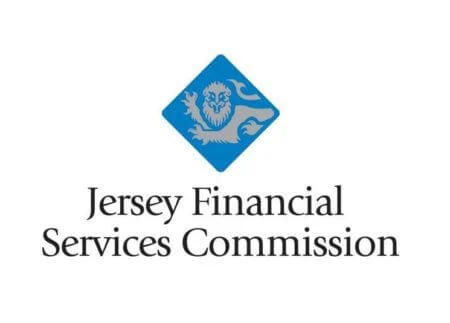There is some symmetry here too, as this is the 20th year since the adoption of the Jersey Law that established the Jersey Financial Services Commission (JFSC).
In evolutionary terms Jersey’s adaptability is one of its strengths and it has consistently played to that strength over the past two decades, particularly the years since the global financial crisis that erupted in 2007/8. Jersey is a niche financial hub and it is highly specialised and skilled in the services it provides and supports, yet those last 10 years have seen significant upheaval and change, initially in the shape of the financial crisis itself and more recently in the uncertainty surrounding Brexit and European equivalence.
However Jersey has responded, survived and continues to thrive. The role of the JFSC in this is to be agile enough to support business whether it is tech, digital, or traditional, with a major contribution in these endeavours being to support continued market access, such as for the funds industry through AIFMD while providing proportionate regulation. To demonstrate this, bitcoin and other cryptocurrencies have leapt out of obscurity and have become trending news stories in the last year, whereas the JFSC approved the regulation of a bitcoin fund in 2014 and Jersey introduced legislation to regulate virtual currency exchanges for AML/CFT in 2016. The latter was introduced after extensive risk assessment and consultation and presents a pragmatic, risk–based response which is increasingly being echoed in other jurisdictions, highlighting Jersey’s commitment to remaining at the forefront of innovations and new technologies. Whilst we are focused to act as a market enabler and facilitator, our first duty lies in the protection of market participants – particularly the customers of our financial services firms – and in doing so the reputation of the industry and the Island as a whole; a challenge that we are taking as seriously as ever in ever more challenging circumstances.
Education and awareness to enhance protection – a growing expectation on regulators
Last year the JFSC ran its first overt public education campaign on investment misselling which we judged to be a great success and has been recognised as such by a number of international peer regulators; we are looking to continue this good work and this year we will be leading another campaign focusing on other topical aspects of personal finance awareness, again in association with the UK based Personal Finance Association (PFS). We have general outreach initiatives like this, that look to bring awareness to vulnerable participants here and now, while also proactively bringing financial education into the school place, in line with IOSCO recommendations. To illustrate the latter we are currently visiting two-thirds of the secondary schools in Jersey on an annual basis.
Prevention via education is a powerful measure but a regulator without teeth is soon ignored. In 2015, in addition to its existing range of meaningful sanctions, the JFSC was granted the statutory power to impose civil financial penalties on regulated businesses for contraventions of JFSC Codes of Practice, which mandate the standards that a regulated business must meet when carrying on its regulated activities. In approving the civil financial penalties legislation, the States of Jersey once again showed its commitment to ensuring that the Island’s financial services regulator has a full suite of powers in its arsenal and all the necessary sanctions to deter poor behaviour and to meet international regulatory standards. This year we will seek to strengthen that regime to include imposing penalties on relevant individuals for contraventions of the Codes of Practice.
Market development
At the JFSC, we are also asked by our statute to act in the best economic interests of the Island and this finds expression in many ways, not least in our collaboration with industry and government to develop Jersey’s offer as an IFC. Accordingly, after much collaboration with industry and government last year, we saw the launch of the Jersey Private Fund (JPF) rationalising the private fund space in Jersey. This has been well received by industry and this year we will be undertaking a similar exercise in relation to public funds.
In 2018 we will also be enhancing our codes of practice for investment business, to better align us, where appropriate, to MiFID II standards (the influential EU standard in this arena); one area where we plan to take on an early adopter posture is to provide better protection for vulnerable investors, an initiative that industry working groups have welcomed and global peers will no doubt adopt in the coming years.
The importance of cyber-crime increases each year and with it so does our focus; we are committed to enhancing our internal protection environment and to support industry in protecting itself. As we become ever more reliant on data, to support our risk-based supervision and conform to beneficial ownership requirements, this arguably puts a target on our back. We are not alone, this is the new norm for regulators and we must have the systems and expertise to mitigate the risks that come with this new reality.
Strategically our move to be an ever more risk-based supervisor allows us to focus our efforts where they have the most effect without increasing our resource levels. In addition, a dedicated and specialist team of supervision staff now focus exclusively on examinations targeting thematic, entity risk, or event driven scenarios. This approach, driven by the learnings from events of the global financial crisis, is aimed at allowing us to maintain vigilance and react with improved agility, earlier and more efficiently than before.
Global drivers
The yardstick determined by the plethora of global standards shifts continuously and as such we must react appropriately; maintaining our reputation internationally is of paramount importance. We must continue to measure and enact an appropriate response; the recent cases of the Paradise Papers and the Brussels screening of global tax policies are examples that testify to this. Reputations are hard won and easily lost.
Regarding the adoption of the Basel III capital accord, the JFSC has completed consultation on the capital definitions and liquidity elements and will implement changes in 2018. For other elements, we will consult in 2018 on the implementation strategy, recognising the relevancies to the business models of locally incorporated banks but also the long timeline for implementation for some elements.
No section on the drivers of regulatory expectations would be complete without a look at the financial crime arena and the last 10 years have brought many changes in the AML/CFT space. Back in 2009 Jersey was assessed for compliance with the FATF Recommendations by the IMF. Shortly thereafter, Jersey joined MONEYVAL (a FATF-style regional body established under the auspices of the Council of Europe) and quickly established itself as a proactive member, attending plenary meetings three times a year and providing a number of trained assessors to participate in peer reviews. This led to our first evaluation by Moneyval in 2015/16, resulting in a high quality outcome in our report and placed Jersey in the highest echelon of FATF-compliant jurisdictions. We cannot long rest on those laurels though, as the new recommendations and assessment methodology place much more emphasis on effectiveness. Our next expected evaluation is not until 2021 but the work has started in earnest and we are deeply involved in the Island’s response.
In this respect the Island-wide dedication to undertake National Risk Assessment (NRA) on our AML/CFT capabilities and potential vulnerabilities, coupled with our responsive reaction to implement in a timely way the accord with the UK authorities on exchange of information with relevant authorities on beneficial ownership, are both significant and demanding undertakings. With up-to-date relevant data the JFSC is better placed to contribute to the initiative to identify, assess and understand the money laundering and terrorist financing threats and vulnerabilities present in the Island as a result of the products and services offered by financial services businesses, as well as to conduct risk-based supervision.
We recently consulted with Industry on our intentions to collect individual firm specific and customer data in an organised manner on a more regular basis. During 2018 this data gathering exercise will prioritise gathering information on information relevant to compliance with the financial crime regulatory framework.
The bigger picture
Perhaps I should end on a more strategic note, for all the activities I have mentioned take place in an uncertain and shifting environment that challenges us all, not least regulators, in adapting to the pace and degree of current change in a measured and proportionate way. In this, it is impossible in this context not to consider the pending impact of Brexit and our relationship with the UK and Europe more broadly. We are watchful and focused on maintaining our good relations with our neighbours and peers but also confident that we are agile enough to react to whatever landscape the future brings.
The 20th anniversary of the JFSC’s existence is for us a source of pride but also an opportunity for reflection. We have conducted ourselves in a manner which I firmly believe has served the Island well and we have every intention of continuing with the same dedication and diligence in what lies ahead. However, Einstein’s maxim on the nature of insanity comes to mind in reflecting that one cannot carry on merely doing the same things and expecting a different result. If there is one quality that above all we will have occasion to prize in what lies ahead it is adaptability and we will use all our energy and effort in pursuing and deploying it to good effect.
John Harris, Director General, Jersey Financial Services Commission (JFSC).
John Harris has been the JFSC’s Director General since 2006 and a Commissioner on the Board of Commissioners since 2007. He is also Registrar of the Companies Registry.
During his tenure, John has overseen significant change in both regulatory and operational terms and continues to shape the organisation. His role encompasses significant statutory, developmental, representational and international engagement responsibilities.
John’s career in financial services spans more than 38 years, having worked as an international banker, government adviser and now chief regulator. Prior to the JFSC, John worked for the Government of Jersey as Director of International Finance and before this he was CEO of NatWest Offshore.


